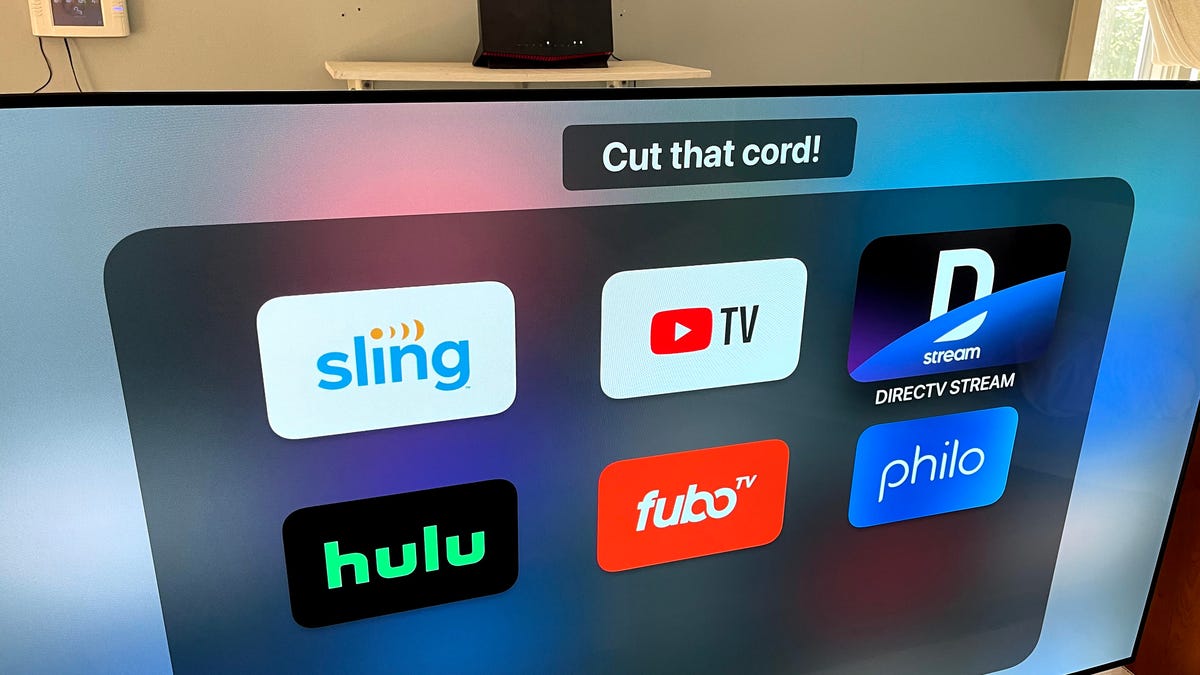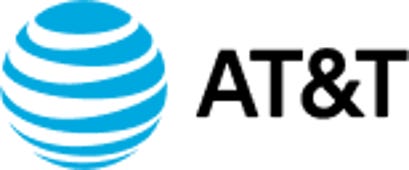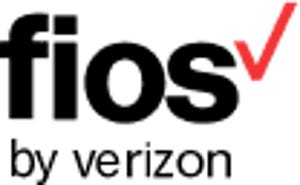
Astound – Plans starting at $20
- Prices: $20 – $80 per month
- Speeds: 100 – 1,500Mbps
- Key Info: Unlimited data, low promo prices, no contracts
AT&T Fiber – Plans starting at $55
- Prices: $55 – $250 per month
- Speeds: 300 – 5,000Mbps
- Key Info: Unlimited data, no contracts, equipment included
CenturyLink and Quantum Fiber – Plans starting at $30
- Prices: $55 per month
- Speeds: 10 – 140Mbps
- Key Info: Unlimited data, no contracts
Frontier – Plans starting at $50
- Prices: $50 – $155 per month
- Speeds: 500 – 5,000Mbps
- Key Info: Unlimited data, no contracts, no equipment fee
Kinetic by Windstream – Plans starting at $40
- Prices: $40 – $70 per month
- Speeds: 100 – 1,000Mbps
- Key Info: Unlimited data, no contracts
Optimum – Plans starting at $40
- Prices: $40 – $80 per month
- Speeds: 300 – 940Mbps
- Key Info: Unlimited data on some plans, low price increase
Spectrum – Plans starting at $50
- Prices: $30- $90 per month
- Speeds: 100 – 1,000Mbps
- Key Info: Unlimited data, simple pricing, no contracts, modem included, free access to nationwide Wi-Fi hotspots
Starry Internet – Plans starting at $30
- Prices: $30 – $80 per month
- Speeds: 50 – 1,000Mbps
- Key Info: Unlimited data, no contracts, no equipment fees, simple setup
T-Mobile Home Internet – Service starting at $60
- Prices: $60 per month
- Speeds: 72 – 245Mbps
- Key Info: Unlimited data, equipment included, no contracts, no additional fees
Verizon Fios – Plans starting at $50
- Prices: $50 – $120 per month
- Speeds: 300 – 2,000Mbps
- Key Info: Unlimited data, no contracts, free equipment with gig service
Verizon 5G Home Internet – Plans starting at $50
- Prices: $50 – $70 per month
- Speeds: 85 – 1,000Mbps
- Key Info: Unlimited data, no contracts, free equipment, 50% discount for qualifying Verizon mobile customers
WideOpenWest – Plans starting at $20
- Prices: $20 – $95 per month
- Speeds: 100 – 1,200Mbps
- Key Info: Good promo prices, no contracts, unlimited data on some plans
Ziply Fiber – Plans starting at $20
- Prices: $20 – $900 per month
- Speeds: 100 – 50,000Mbps
- Key Info: Unlimited data, no contracts, fast rural internet connection
Everything you use the internet for consumes data, from streaming TV and gaming online to simply viewing this webpage. Over the course of a month, it’s possible to use up quite a bit of data. In fact, the average household uses 586.7GB of data each month.
Most internet providers offer unlimited data, allowing customers to stream, game and browse to their heart’s content without also having to keep track of how much data they are using. Others, however, enforce data caps and will throttle your speeds or charge extra fees (or both), once you’ve gone over your limit.
The best way to avoid data caps and overage penalties is to not have a data cap at all. These are some of the best internet providers to offer unlimited data. Keep in mind that not all providers and plans are available in all areas.
100 – 1,500 Mbps
$20 – $80 per month
Our take – Speeds, pricing and special offers from Astound are a bit all over the place from one market to the next, but unlimited data is one perk available in all service areas.
100 – 1,500 Mbps
$20 – $80 per month
300 – 5,000 Mbps
$55 – $250 per month
Our take – AT&T is our pick for the best fiber internet provider overall thanks to its high availability, competitive pricing, fast speeds and unlimited data. All AT&T Fiber plans come with no data cap, which means you can stream, game and browse social media to your heart’s content without fear of incurring overage fees. Starting prices for AT&T Fiber plans range from $55 per month for up to 300Mbps to $180 per month for multi-gig speeds up to 5,000Mbps.
300 – 5,000 Mbps
$55 – $250 per month
10 – 140 Mbps
$55 per month
Our take – CenturyLink internet plans previously came with a monthly data cap of 1TB. There was no fee or speed throttling for going over, but frequent or excessive overages could violate the terms of service.
10 – 140 Mbps
$55 per month
500 – 5,000 Mbps
$50 – $155 per month
Our take – Unlike AT&T, Frontier offers unlimited data with both its DSL and fiber-optic internet services. Equipment costs are also included in the monthly cost and no contracts are required, making Frontier one of the more straightforward providers when it comes to pricing.
500 – 5,000 Mbps
$50 – $155 per month
100 – 1,000 Mbps
$40 – $70 per month
Our take – Kinetic is another service that comes with unlimited data regardless of whether it’s DSL or fiber optic. Speeds and pricing can and do vary by location with Kinetic, more than just about any major provider it seems, but unlimited data is one standard customers across all markets can enjoy.
100 – 1,000 Mbps
$40 – $70 per month
300 – 940 Mbps
$40 – $80 per month
Our take – Optimum includes unlimited data with all plans. Along with that advantage, Optimum plans are priced lower than most considering the speeds you get.
300 – 940 Mbps
$40 – $80 per month
100 – 1,000 Mbps
$30- $90 per month
Our take – Starting prices for Spectrum internet plans are a little higher than most, but all plans come with fast speeds, no contracts and, you guessed it, unlimited data. That, plus a modest equipment fee of just $7 per month if you choose to rent a router puts Spectrum right up there with Frontier when it comes to straightforward pricing.
100 – 1,000 Mbps
$30- $90 per month
Fixed wireless
50 – 1,000 Mbps
$30 – $80 per month
Our take – In my review of Starry Internet, I was impressed by the provider’s ability to offer affordable, high-speed service over a fixed wireless network. The provider’s flagship plan offers up to 200Mbps starting at $50 per month, but gig service is available in select areas starting at $80 per month.
Fixed wireless
50 – 1,000 Mbps
$30 – $80 per month
Fixed wireless
72 – 245 Mbps
$60 per month
Our take – 5G may be the future of home internet, at least in underserved areas where cable and fiber internet is either unavailable or too expensive. Enter T-Mobile. The provider is available to more than 30 million homes, a third of which are in rural or suburban areas.
Fixed wireless
72 – 245 Mbps
$60 per month
300 – 2,000 Mbps
$50 – $120 per month
Our take – Verizon Fios ranks right up there with AT&T Fiber when it comes to speeds, pricing and customer satisfaction. Another thing going for the provider: unlimited data. Each Verizon Fios plan — 300Mbps starting at $50 per month, 500Mbps starting at $70 per month and gig service starting at $90 per month — comes with unlimited data.
300 – 2,000 Mbps
$50 – $120 per month
Fixed wireless
85 – 1,000 Mbps
$50 – $70 per month
Our take – Verizon’s 5G home internet service offers two plans: $50 per month for speeds ranging from 50 to 300Mbps or $70 for anywhere between 85 and 1,000Mbps. The actual speeds you can get will depend on your location, but either way, unlimited data is included with both plans.
Fixed wireless
85 – 1,000 Mbps
$50 – $70 per month
100 – 1,200 Mbps
$20 – $95 per month
Our take – WideOpenWest (WOW) plans start at just $20 per month for speeds up to 100Mbps, but other plans include 200Mbps, 500Mbps and gigabit service. All plans come with unlimited data.
100 – 1,200 Mbps
$20 – $95 per month
100 – 50,000 Mbps
$20 – $900 per month
Our take – The newest provider featured on our list of top ISPs with no data cap is Ziply Fiber, which began offering service to the Pacific Northwest in early 2020 after relieving Frontier of DSL and fiber-optic networks in the region.
100 – 50,000 Mbps
$20 – $900 per month
Honorable mentions with (sort of) unlimited data
These providers are not truly unlimited, but either offer unlimited data options or won’t penalize you too harshly for going over your limit. While no data cap is ideal, these providers are a close second.
HughesNet: HughesNet has “no hard data caps.” What does that mean, exactly? HughesNet plans now come with speeds of 50 to 100Mbps and a “priority data” limit of 100 to 200GB per month. If and once you exceed that limit, HughesNet may lower your speeds for the remainder of your billing cycle to free bandwidth for folks who haven’t yet gone over theirs. There’s no overage fee, though, and you can add more data throughout the month if the slowed speeds are a nuisance.
Rise Broadband: Rise Broadband is a fixed wireless provider popular in many rural areas due to its ability to deliver internet service without the need for a dedicated phone, cable or fiber wire. It’s also a popular choice for unlimited internet, but only if you opt for (and pay a little extra for) an unlimited plan. Rise Broadband plans range from 25 to 50Mbps starting at $45 to $55 per month but come with a data cap of 250GB. If you want unlimited data, the same plans will cost you around $10 more per month.
Xfinity: Xfinity is the largest internet provider to not include unlimited data with its all plans. That’s not to say unlimited data isn’t available with Xfinity. Service terms can vary widely by location with Xfinity, so select plans in some markets may very well come with unlimited data. In others, unlimited data is available for an additional $11 per month for xFi gateway customers or $30 per month for customers who use their own gateway device. Considering Xfinity plans normally come with a generous 1.25TB of data per month (way more than most will come close to using), it may be more economical to just watch your monthly data usage and avoid going over.
Pros and cons of internet plans with no data caps
For the most part, the reasons to choose an unlimited internet provider or plan far outweigh the reasons not to, but there may be some instances where accepting a data cap makes sense.
Pros
- No overage fees or other penalties for exceeding your limit
- No having to monitor your data usage throughout the month
- Unlimited data is ideal for multiple devices or those who use large amounts of data for working from home or learning online
Cons
- Monthly pricing may be higher
- It may not be worth the upgrade
Some providers charge a premium for unlimited data, which could add $10 or more to your monthly bill. Others may only offer unlimited data with select service types or plans and, while the unlimited data may be enticing, it’s possible that upgrading to a pricier plan could have you paying for more than you need.
Those instances are fairly uncommon, which means internet plans with no data cap are typically the better value. When considering internet providers, I’d always check out the ones with unlimited data first.
Internet provider data cap FAQs
What uses the most internet data?
Streaming video, especially if it’s in HD or 4K. According to Netflix, streaming in standard definition can consume 1GB per hour, HD can eat up 3GB per hour and 4K can use as much as 7GB per hour. Let’s say you binge all 485 minutes of Squid Game in HD this month; that’ll add up to around 24GB of data.
Why do internet providers have data caps?
There’s only so much bandwidth available, so providers may have to enforce data caps to keep everyone happy and connected. This is especially true with satellite internet technology, which has limited bandwidth. Consequently, you’ll find the lowest monthly data allowances, by far, with satellite internet service.
In the case of DSL and cable internet providers, which often come with a data cap of around 1TB, if any, the providers largely just want to discourage excessive usage. If they were planning to make extra money in the form of overage fees, they’d lower the data cap from 1TB, which is typically far more than the average household will use.
If you have a 1TB data cap, the good news is that’s probably going to be more than enough for your needs. Prior to the COVID-19 pandemic, the average household used somewhere around 200 to 300GB per month on roughly 10 connected devices, according to a recent Statista study. Even as the pandemic prompted millions of people to work, learn and seek their entertainment from home, average monthly data usage spiked in March of 2020 to around 400GB, which is well below 1TB.
How can I use less internet data?
There are a number of ways to reduce your internet data use, including streaming in standard definition as opposed to HD, downloading music or TV shows instead of streaming them repeatedly, and disconnecting unused devices from your Wi-Fi network.
























